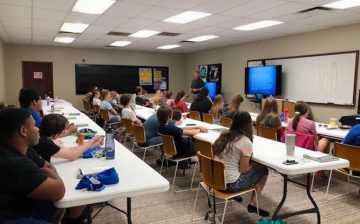Driving is not just a skill; it’s a responsibility that requires a comprehensive understanding of road rules, safety measures, and practical experience. Enrolling in a driving school can make a significant difference in your journey to becoming a proficient and responsible driver.
- Introduction
- Importance of Learning Car Driving
Learning to drive is a pivotal life skill that opens up new opportunities and enhances personal freedom. Whether it’s commuting to work, running errands, or planning a road trip, the ability to drive independently adds convenience to daily life. Therefore you should go with Driving school cost and take driving training from here in smooth way.
- The Role of Driving Schools
Driving schools play a crucial role in shaping responsible drivers. They go beyond the basic mechanics of driving, providing comprehensive training that includes safety, legal compliance, and hands-on experience.
- Safety First
- Emphasizing Road Safety
One of the primary reasons to enroll in a driving school is to instill a strong sense of road safety. Instructors emphasize the importance of following traffic rules, understanding road signs, and practicing defensive driving techniques.
- Professional Guidance in Driving Schools
Professional driving instructors bring a wealth of knowledge and experience to the table. Their guidance ensures that learners are well-equipped to handle various driving scenarios, promoting a safe and secure driving environment.
III. Legal Requirements
- Meeting Legal Obligations
Driving schools ensure that learners understand and comply with legal requirements for driving. From obtaining a learner’s permit to passing the driving test, these institutions guide individuals through the necessary steps to become legal drivers.
- Learning Traffic Rules and Regulations
In-depth knowledge of traffic rules and regulations is a cornerstone of responsible driving. Driving schools impart this knowledge, ensuring that learners not only pass exams but also internalize the importance of following the law.
- Defensive Driving Techniques
- Developing Defensive Driving Skills
Defensive driving goes beyond the basics, teaching individuals how to anticipate and respond to potential hazards on the road. This proactive approach is invaluable in preventing accidents and minimizing risks.
- Navigating Unexpected Situations on the Road
Driving schools simulate real-world scenarios, preparing learners to navigate unexpected situations. Whether it’s adverse weather conditions or sudden obstacles, drivers trained in defensive techniques are better equipped to handle challenges.
- Confidence Boost
- Building Confidence Behind the Wheel
Many individuals harbor anxiety or fear related to driving. Driving schools provide a supportive environment for learners to build confidence gradually, fostering a positive mindset for a lifetime of safe driving.
- Overcoming Fear and Anxiety
Instructors employ techniques to address and overcome fear and anxiety associated with driving. This personalized approach ensures that learners feel comfortable and empowered behind the wheel.
- Specialized Training
- Tailored Instruction for Different Learners
Driving schools recognize that each learner is unique. Tailored instruction addresses specific needs, accommodating different learning styles and abilities.
- Handling Diverse Driving Scenarios
From city driving to navigating rural roads, driving schools expose learners to diverse driving scenarios. This prepares them for a variety of situations they may encounter in their driving journey.
VII. Familiarity with Traffic Signs
- Understanding and Interpreting Road Signs
Comprehensive knowledge of traffic signs is essential for safe driving. Driving schools ensure that learners not only memorize these signs but understand their meanings and implications on the road.
- Application of Knowledge in Real-World Driving
Knowledge gained in the classroom is applied during practical driving lessons. This hands-on approach reinforces the importance of traffic signs and their role in safe navigation.
VIII. Insurance Benefits
- Discounts for Completing Driving School
Many insurance providers offer discounts to drivers who have completed certified Driving School Programs. This financial incentive makes enrolling in driving school a wise investment.
- Lowering Insurance Premiums with Certified Training
Certified training from a reputable driving school can lead to lower insurance premiums. Insurance companies view graduates as lower-risk drivers, translating to potential long-term cost savings.
- Practical Experience
- Gaining Hands-On Experience
Driving is a practical skill that improves with hands-on experience. Driving schools provide ample opportunities for learners to apply theoretical knowledge in real-world driving situations.
- Simulated Scenarios in Driving Schools
Simulated scenarios, such as parallel parking or emergency braking, allow learners to practice specific skills in a controlled environment. This focused training enhances overall driving competence.
- Staying Updated with Technology
- Integrating Technology in Driving Lessons
Modern driving involves technology, from navigation systems to advanced safety features. Driving schools incorporate these technological aspects into lessons, ensuring that learners stay current with the evolving driving landscape.
- Keeping Up with Modern Driving Advancements
An awareness of modern driving advancements, such as electric vehicles and autonomous driving, is crucial. Driving schools equip learners with the knowledge needed to adapt to the changing automotive landscape.
- Economic Considerations
- Cost-Effectiveness of Driving Schools
While the initial cost of driving school may seem like an expense, it is a cost-effective investment in the long run. Proper training can prevent accidents, reducing potential repair and medical expenses.
- Saving Money in the Long Run
Avoiding accidents, fines, and penalties through quality driving education can lead to significant financial savings over time. Responsible driving practices contribute to a safer and more cost-efficient driving experience.
XII. Community Responsibility
- Promoting Responsible Driving in the Community
Graduates of driving schools contribute to safer roads by adhering to responsible driving practices. This collective responsibility positively impacts the overall safety of the community.
2 .Reducing Accidents and Road Mishaps
A community of well-trained drivers helps reduce accidents and road mishaps, creating a safer environment for all road users. Driving schools play a pivotal role in achieving this collective goal.
XIII. Personal Testimonials
- Real-Life Experiences from Driving School Graduates
Hearing personal experiences from driving school graduates provides valuable insights. Success stories and lessons learned serve as inspiration for those considering enrolling in a driving school.
- Success Stories and Lessons Learned
Individuals often share how driving school transformed their perspective on driving and enhanced their skills. These success stories highlight the tangible benefits of investing in professional driving education.
XIV. Overcoming Common Objections
- Addressing Common Concerns About Driving Schools
Some individuals may have reservations or objections about enrolling in driving school. Addressing common concerns helps debunk myths and encourages more people to consider the advantages of formal driving education.
- Debunking Myths Surrounding Driving Education
Dispelling myths, such as driving schools being only for beginners or expensive, clarifies the diverse benefits driving education offers. Clearing misconceptions fosters a more informed approach to learning to drive.
- Conclusion
- Summarizing the Benefits of Enrolling in Driving School
Enrolling in driving school goes beyond acquiring a driver’s license; it’s about becoming a responsible and confident driver. The benefits, ranging from safety and legality to economic considerations, make it a worthwhile investment.
- Encouraging the Pursuit of Safe and Confident Driving
As we conclude, the message is clear: the decision to enroll in driving school is a commitment to safe and confident driving. Encouraging others to take this step contributes to a collective effort towards creating safer roads.
Frequently Asked Questions (FAQs)
- Is driving school only for beginners, or can experienced drivers benefit as well?
- Driving school benefits both beginners and experienced drivers by enhancing skills and reinforcing safe driving practices.
- How can enrolling in driving school save me money on insurance premiums?
- Insurance companies often provide discounts to drivers who have completed certified driving school programs, considering them lower-risk.
- Are driving schools adapting to the latest advancements in automotive technology?
- Yes, driving schools integrate modern technology into lessons to ensure learners stay informed about the evolving driving landscape.
- What sets driving schools apart from learning to drive through family or friends?
- Driving schools offer professional guidance, structured lessons, and a comprehensive curriculum that may not be available in informal learning settings.
- How do driving schools contribute to community safety?
- Driving school graduates, equipped with responsible driving practices, contribute to safer roads, reducing accidents and promoting community well-being.











